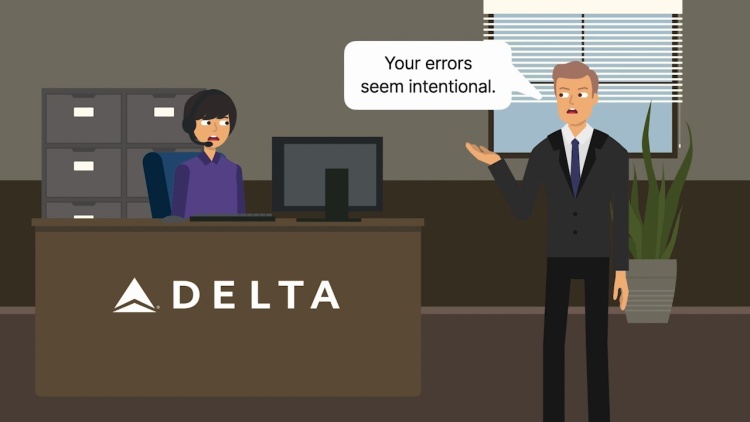Marcy v. Delta Airlines
United States Court of Appeals for the Ninth Circuit
166 F.3d 1279 (1999)

- Written by Sara Rhee, JD
Facts
Beginning in 1987, Suzanne Marcy (plaintiff) was employed by Delta Airlines (Delta) (defendant) at a facility in Montana. Marcy was generally considered to be an outstanding employee. In May 1993, Marcy submitted a payroll document containing three mistakes that would have resulted in her receiving $250 in unearned wages. When Delta confronted Marcy about the discrepancies, Marcy explained that the incorrect entries were due to honest mistakes and that she did not have a chance to check the document for mistakes. Marcy had not been concerned about being unable to check the document, because mistakes were common in Delta’s payroll system and Delta’s practice was to consult with employees about any discrepancies. As a result of the mistakes and a prior incident of fraud in which Marcy had falsified telephone logs to make personal long-distance phone calls, Delta terminated Marcy’s employment. Marcy sued Delta in state court for wrongful discharge under Montana’s Wrongful Discharge from Employment Act (WDEA). Delta removed the case to the United States District Court for the District of Montana. A jury determined that Marcy’s errors were unintentional and that Delta had therefore wrongfully discharged Marcy under the WDEA. Delta moved for judgment as a matter of law, or in the alternative for a new trial, on the ground that Marcy had not shown Delta acted in bad faith. The district court denied the motions. Delta appealed.
Rule of Law
Issue
Holding and Reasoning (Boochever, J.)
Dissent (Graber, J.)
What to do next…
Here's why 907,000 law students have relied on our case briefs:
- Written by law professors and practitioners, not other law students. 47,100 briefs, keyed to 996 casebooks. Top-notch customer support.
- The right amount of information, includes the facts, issues, rule of law, holding and reasoning, and any concurrences and dissents.
- Access in your classes, works on your mobile and tablet. Massive library of related video lessons and high quality multiple-choice questions.
- Easy to use, uniform format for every case brief. Written in plain English, not in legalese. Our briefs summarize and simplify; they don’t just repeat the court’s language.





